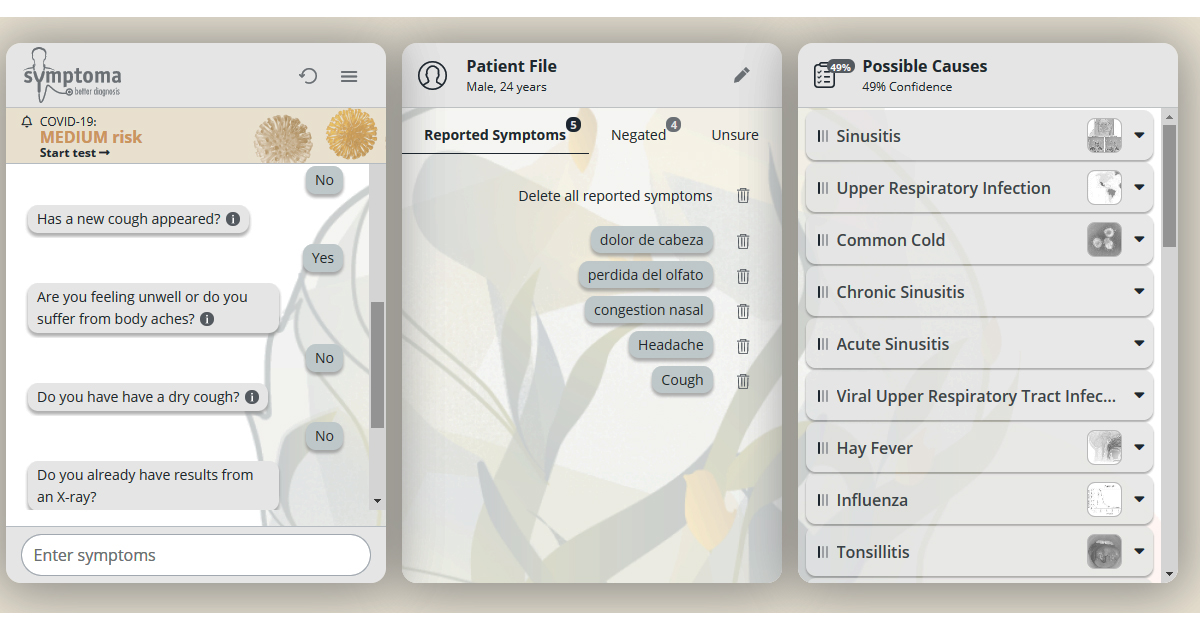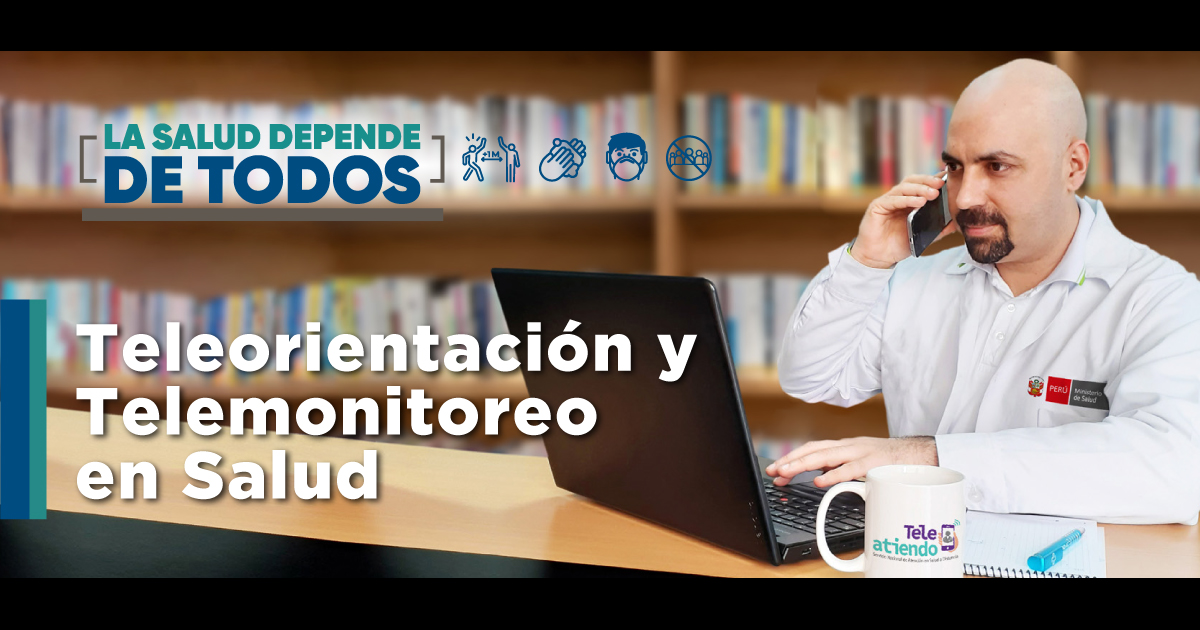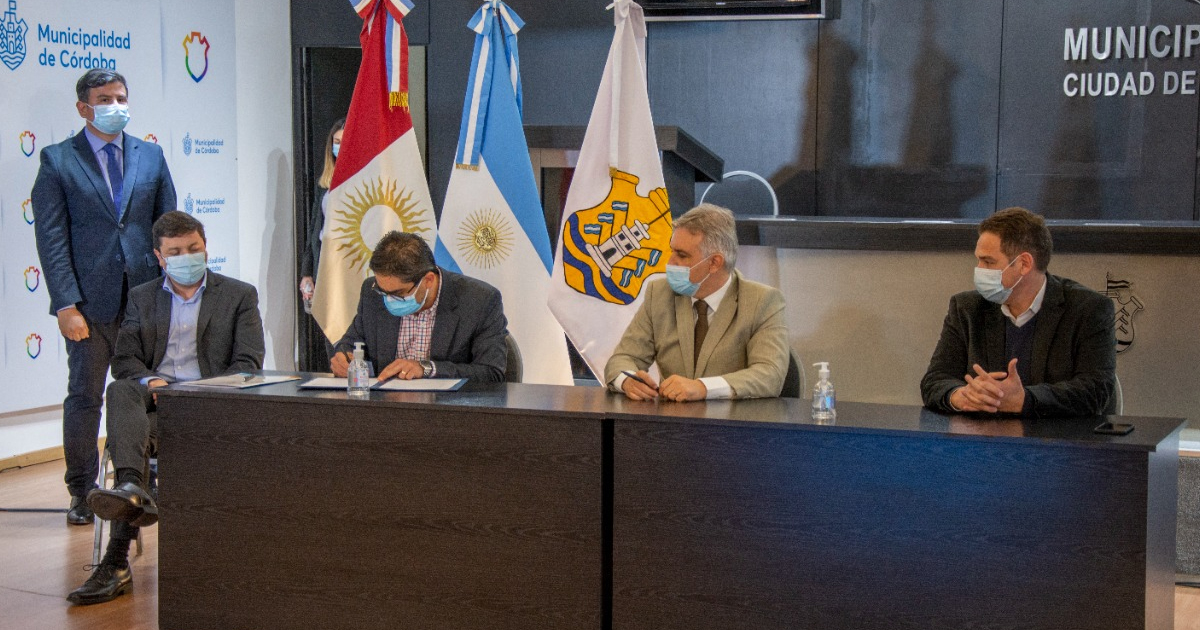The technology is a digital health care tool, capable of differentiating more than 20 thousand diseases with an accuracy of more than 90%, and was recently tested with confirmed cases of COVID-19 to measure its effectiveness. In addition, this technology can be accessed for free through its web platform.
Symptoma is a development based on Artificial Intelligence (AI), to assist in the diagnosis of diseases. Recently, an article was published in the journal Nature, in which the developers explain that it is currently able to distinguish COVID-19 with an accuracy of 96.32% and even 100% when only the symptoms related to this disease and risk factors are considered.
The article entitled "An artificial intelligence-based first-line defence against COVID-19: digitally screening citizens for risks via a chatbot". In the article they propose, the Digital Health services, for the pre-diagnosis of possible people infected with the SARS-CoV-2 virus. This, through computer-based approaches and digital technologies, it is possible to create symptom verifiers that allow users to select the symptoms they have presented so far.

"Symptoma uses (free-text) keywords and symptoms, age and sex as input from a user. The prediction engine then references a proprietary symptom-disease database curated by medical doctors and built upon a large text corpus that includes scientific publications, medical textbooks, patient self-reports, and Electronic Health Records, to map this input to possible causes," the study mentions in the Methods section.
In addition, the predictions also collect several relevant factors, such as the frequency rate of symptom appearance, the incidence of specific diseases in the country and geographical area, in this way the AI classifies more than 20,000 causes and gives as a result of the analysis the 30 most probable ones.
Symptoma was tested against other diagnostic verifiers of ear, nose and throat diseases, exceeding them significantly in their results, besides related to the identification of COVID-19 cases. It was also tested with negative cases of COVID-19, for this test it was necessary to collect more than one thousand negatives, in addition they made restrictions to determine that they were not confused with other diseases with similar symptoms such as severe acute respiratory syndrome or avian influenza.
Symptoma provides a diagnostic accuracy with regards to COVID-19 higher than alternative approaches. It is usable in numerous languages and trends it exhibits correlates strongly with those found nationally. On the grounds, we believe that Symptoma is a highly valuable tool in the global COVID-19 crisis," they note as a conclusion.
The platform is freely accessible through the following link https://www.symptoma.com/ and reporting the symptoms is a very simple task, as the chatbot understands several languages and the questions are clear and easy to understand.






